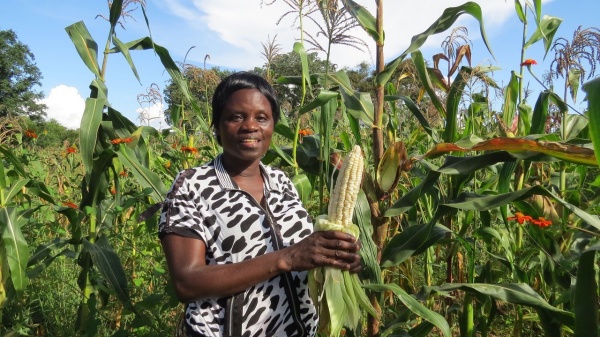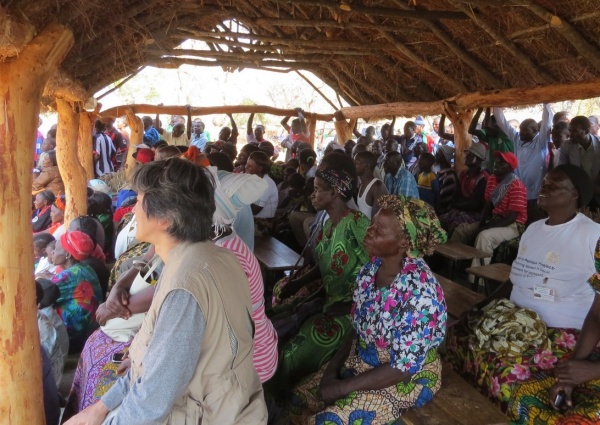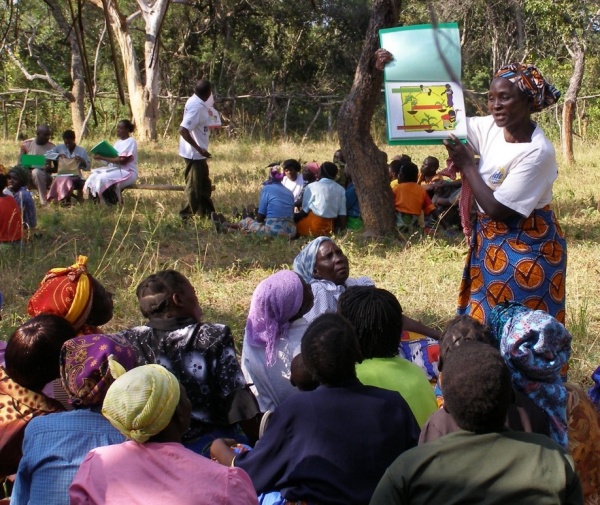- Farmer ‘Train the Trainer’ Workshops
The Farmer Workshops empowered women farmers to educate other farmers about Natural Agriculture and elevated their status in their communities. In the beginning, the women farmers had to be encouraged to share their best practices, because it was not customary to talk about their success. This gradually changed and the farmers now see the benefits of sharing their knowledge with others and are more forthcoming and supportive of new farmers.
As the Natural Agriculture project grew, the need for a youth component became more evident and is now being incorporated into new projects. In the early stages, Shumei donated computers for a youth program. However, electricity access was limited and the young people had no immediate need for the computers. It became clear that the youth development program needed to be implemented gradually and based on a needs assessment. Currently, the NADPZ community center is open to all young people to learn useful, marketable skills and careers. Plans are underway to build a vocational school with a dormitory for students who live far away. The school will teach skills such as sewing, carpentry and electrical engineering.
- Capacity Building, Long-term Planning and Investment
The Natural Agriculture project shed light on the need for training beyond farming. Once the farmers understood how to grow food without additives, they also needed support in managing resources, long-term planning and creating businesses. For example, the farmers wanted to start a project with hammer mills which they would rent and reinvest the profits in the cooperative. However, the equipment was very difficult to operate and required both physical manpower and diesel fuel, which was expensive. While some women farmers were able to enlist support from men in the community, many were not successful. In the end, the project leaders learned they needed to take multiple factors into account before starting new projects.
- Traditional Gender Roles and Ways of Thinking
One of the most challenging aspects of the Natural Agriculture project was addressing traditional gender roles and ways of thinking in the community. While the women were the primary labor force on the farms, their husbands were still the main decision makers. Outreach activities that went beyond the women farmers was necessary in order for the program to be adopted successfully. For example, the men would allow the women to practice Natural Agriculture, but once they started to accrue extra income, the men would want to buy fertilizers. It was seen as a sign of wealth to be able to buy these inputs, whereas the women were learning that it was not necessary. This created the need for continuous education for the community and efforts to empower women further.
While the project goals were to increase the incomes and household status of women farmers, it was difficult to use currency as a metric given the strong bartering system in rural Zambia. Instead, the impact was determined by the farmers’ ability to trade their crops for higher-value items, such as cattle, blankets, and other products that they could resell. It was also difficult to measure given the fluctuating cost of food and the pricing of crops in the market. In the future, greater emphasis should be placed on data collection of yields by more farmers to better quantify results and measure impact.
The Natural Agriculture project became a core part of community development in Mbabala and caught the attention of the Zambian Minister of Community Development. In Zambia, each constituency is eligible to receive Government support from the community development fund. However, communities often do not have the capacity or experience to effectively create budgets or plans to use these resources. This resulted in the Natural Agriculture project team helping to manage additional community development projects. It also reinforced the connection between sustainable agriculture, women’s empowerment and rural community development.










